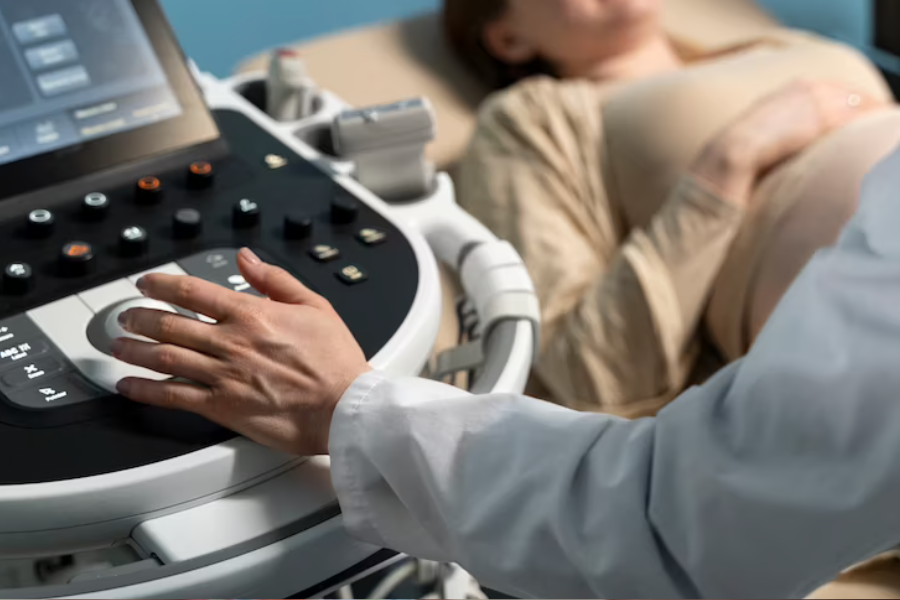
What Is HSG Test And Does It Increase The Chance Of Pregnancy?
24 May 2023 | 4 min Read
Manisha Pradhan
Author | 1053 Articles
Hysterosalpingography or HSG test is a diagnostic procedure commonly used to assess the health of a woman’s fallopian tubes and uterus. It involves the injection of a contrast dye into the uterus, followed by X-ray imaging.
While HSG primarily serves as a diagnostic tool, there have been reports suggesting that it may increase the chances of pregnancy. What is the HSG test and what is the relationship between HSG and pregnancy? Here’s all that you need to know.
What Is HSG Test?

HSG or Hysterosalpingography is a valuable procedure used to evaluate the condition of the fallopian tubes and the uterine cavity. It helps identify any abnormalities, such as blockages or structural defects, that may hinder pregnancy. The procedure typically involves the following steps:
Preparing for the HSG test
The woman will be asked to schedule the HSG around days 7-12 of her menstrual cycle, avoiding the time near ovulation to minimise the risk of disrupting a potential pregnancy. Before the procedure, a pregnancy test may be conducted to ensure the woman is not already pregnant.
Inserting the catheter
A thin catheter is inserted into the cervix and guided into the uterine cavity. This allows for the controlled injection of a contrast dye.
Imaging
The contrast dye is slowly injected, filling the uterus and eventually flowing into the fallopian tubes. X-ray images are taken throughout the process to visualize any abnormalities.
How Does HSG Test Impact Fertility?
While the primary goal of HSG is to diagnose reproductive abnormalities, some studies and anecdotal evidence suggest that it may enhance fertility temporarily. The exact mechanism behind this temporary fertility boost is not yet fully understood, but several theories have been proposed:
- Clearing blockages: HSG involves the forceful injection of the contrast dye, which can potentially dislodge or clear any minor blockages in the fallopian tubes. By removing these obstructions, the chances of pregnancy may increase in the subsequent menstrual cycles.
- Flushing effect: The flow of the contrast dye during HSG may have a flushing effect on the uterus and fallopian tubes, eliminating debris, mucus, or small adhesions. This cleansing action may create a more favourable environment for fertilization and implantation.
- Mechanical distension: The filling of the uterus and fallopian tubes with the contrast dye during HSG could cause temporary mechanical distension. This expansion may lead to improved tubal peristalsis (contractions) and a subsequent increase in egg transport, thereby enhancing the chances of fertilization.
What Are The Side Effects Of The HSG Test?

One of the most common side effects of an HSG is cramping. You may also notice a sticky vaginal discharge where the dye leaves your body.
These symptoms usually resolve on their own in a few days. Your doctor may recommend over-the-counter pain medicines after your HSG test to help ease your pain and symptoms.
HSG test is a valuable diagnostic procedure used to assess the health of a woman’s fallopian tubes and uterus. While its primary purpose is to diagnose reproductive abnormalities, some evidence suggests a temporary increase in fertility following the HSG test. The clearing of blockages, a flushing effect, and mechanical distension that takes place during the HSG test could contribute to the increase in fertility.
Recommended natural skincare products
Also Read:
What Tests Should One Be Doing Before Planning A Pregnancy?: If you’re planning a baby this is a must-read.
What Can I Do If My Pregnancy Is Overdue?: If you find yourself past your due date and eagerly waiting, here’s what you can do.
Cover image source: freepik
A


Related Topics for you
Suggestions offered by doctors on BabyChakra are of advisory nature i.e., for educational and informational purposes only. Content posted on, created for, or compiled by BabyChakra is not intended or designed to replace your doctor's independent judgment about any symptom, condition, or the appropriateness or risks of a procedure or treatment for a given person.


